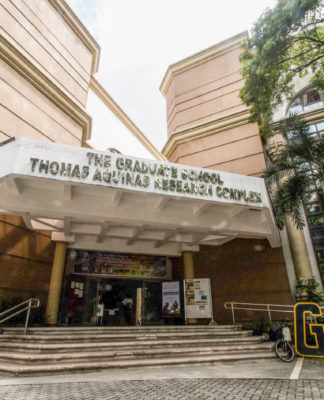LINGAYEN-DAGUPAN Archbishop Oscar Cruz has urged Pope Benedict XVI to decline the invitation of President Macapagal-Arroyo to visit the Philippines, Asia’s largest Catholic country. Accepting the invitation may “dignify a national leadership that is suffering from dire lack of moral ascendancy, not to mention its big socio-political liabilities.”
The brazen call seems uncharacteristic of bishops who are usally prudential in speech and deed, not to say collegial in their big decicions and declarations. Moreover, Cruz seems ignorant of the fact that historically, papal visits of the Philippines have always been pastoral, not state visits; they have been visits made on the invitation not of the president or the head of state, but of the bishops of the Philippines.
In fact, the Catholic Bishops Conference of Philippines has been quick to point out that it had sent last January an invitation to the Pope to side trip to the Philippines when he makes his trip to Australia next year for the World Youth Day.
If there was anything valid in Cruz’s warning, it would be that the “big sociopolitical liabilities” of the President might worsen as to make more problematic the security of the Pope if ever he came to Manila.
The main liability of the government is its inability to stem what appear as politically inspired violence and abductions. Even scandals involving election rigging in the last elections along with alleged corruption in high offices compound national security concerns that may eventually put into question whether or not the Philippines could host a papal visit.
For example, wouldn’t the recent kidnapping of Italian missionary Fr. Giancarlo Bossi in Mindanao by a breakaway group from Moro Islamic Liberation Front cast doubt of the security capacity of the Philippines to host Benedict’s visit?
Let us remember that during the 1995 visit of Benedict’s predecessor, John Paul II, Al-Qaida operatives plotted Operation Bojinka, an assassination conspiracy that was fortunately uncovered and foiled by Philippine authorities. That incident exposed the nascent global terrorist campaign that led to 9/11 and the Bali bombing. Although John Paul had expressed desire to visit the Philippines again after 1995, he was not able to because of his poor health and the terrorist threat.
Along this line, Cruz has cited the travel advisories issued by “a good number of foreign governments” against the Philippines.
But what is problematic about Cruz’s call is that if indeed the Pope declines the invitation to visit the Philippines, then the poor security image of the country will be magnified.
If he visits the country, the Pope will surely give a boost to the sagging international image of the Philippines. In any case, the Pope is making a pastoral visit, not a state or political one.
“If he visits our country, he will be coming here not as a politician but as a pastor and as a man of God who can inspire both Catholics and non-Catholics alike to be honorable in their everyday deeds,” UST Rector Fr. Ernesto Arceo, O.P. has said.
It doesn’t matter whose invitation the Pope will accept, the CBCP’s or the President’s. “Whether invited by the faithful, the politician, or by the bishops, it does not matter. Being a predominantly Christian country in the Far East, the Filipinos would undoubtedly like to see the Pope in person,” Arceo said.
In any case, the pastoral visit of a pope is also a moral one, as what has happened historically in the Philippines. The 1981 visit of John Paul II rallied the nation against Marcos totalitarianism, just as the earlier 1979 visit by the same pope in his homeland of Poland rallied the Poles against the communist leviathan.
If Cruz fears that Arroyo will use the visit to prop up her regime, then he does not know history. The Pope, as the world’s foremost moral and spiritual leader, cannot be used by any petty potentate to back his or her tyranny or depredation.
And if he really knows the character of President Macapagal-Arroyo, the latter will not force the Pope to “bless” her regime. In fact, it could be that the prospect of a papal visit may pressure the Presdent to really do something about issues that continue to bedevil her government, such as the alleged political killings and kidnappings.
Cruz is obviously no friend of the President. He obviously wants her to step down. If he really wants that, then he should let the Pope come to the Philippines if only to galvanize the opposition against her.
But in calling for the Pope to decline the President’s invitation because the visit may be politicized by the administration, is he not guilty of doing the same thing–politicizing a visit that should remain on the level of the pastoral and the evangelical?
Therefore, in the meantime, let us look at the visit as another way to spiritually and morally inspire us as a people. Father Rector has said it best: “When the current Pope does visit the country, the impact would be more or less the same: inspiring.”















